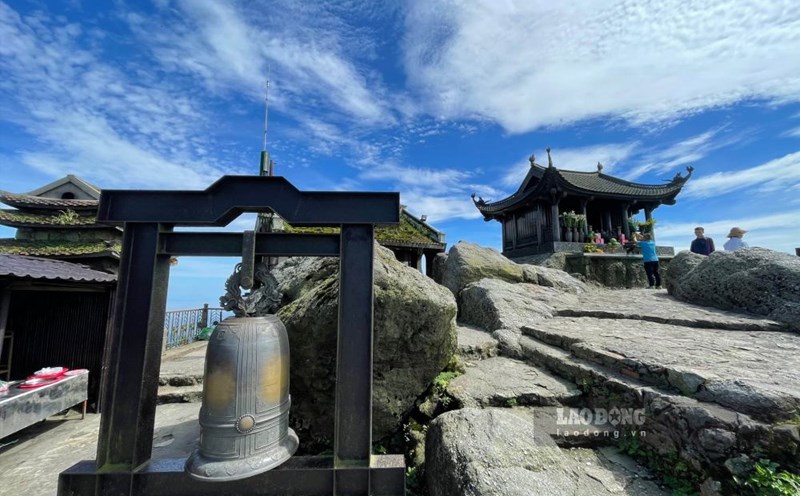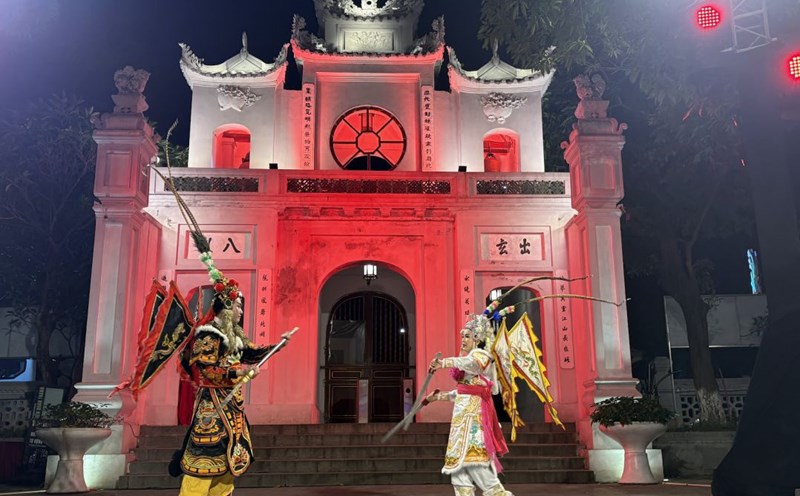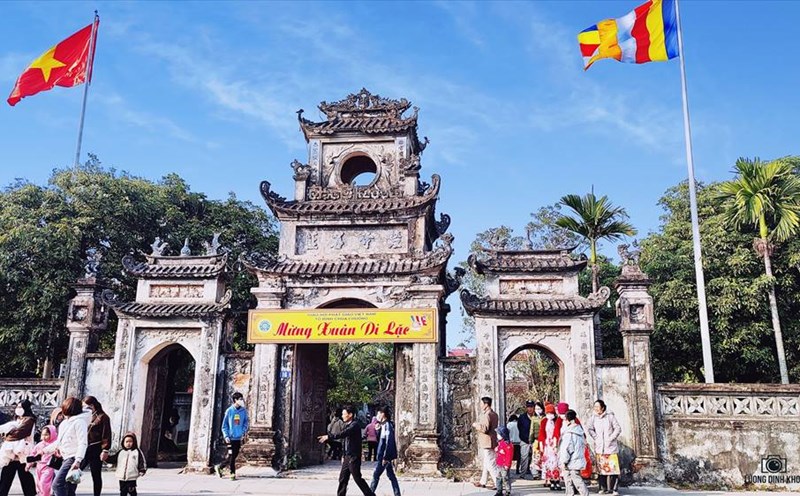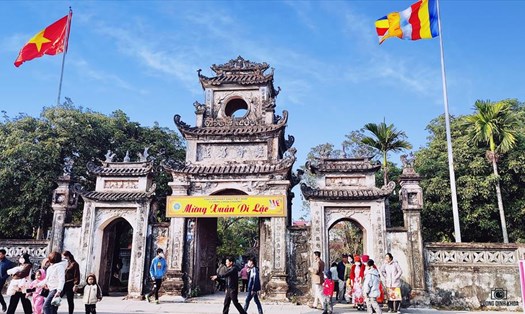From July 1, 2025, the whole country will officially operate a two-level local government model after the National Assembly passed a resolution to merge, reducing the number of provinces to 34 from 63 to 34.
At exactly 6:00 a.m. on July 1, thousands of pagodas and self-honoring facilities across the Fatherland rang bells and drums to pray for national peace and security, favorable weather and harmony.
According to Lao Dong at Tran Quoc Pagoda (Tay Ho Ward, Hanoi) at 6:00 a.m. on July 1, the monk's staff held three bells and a drum to pray for national peace.
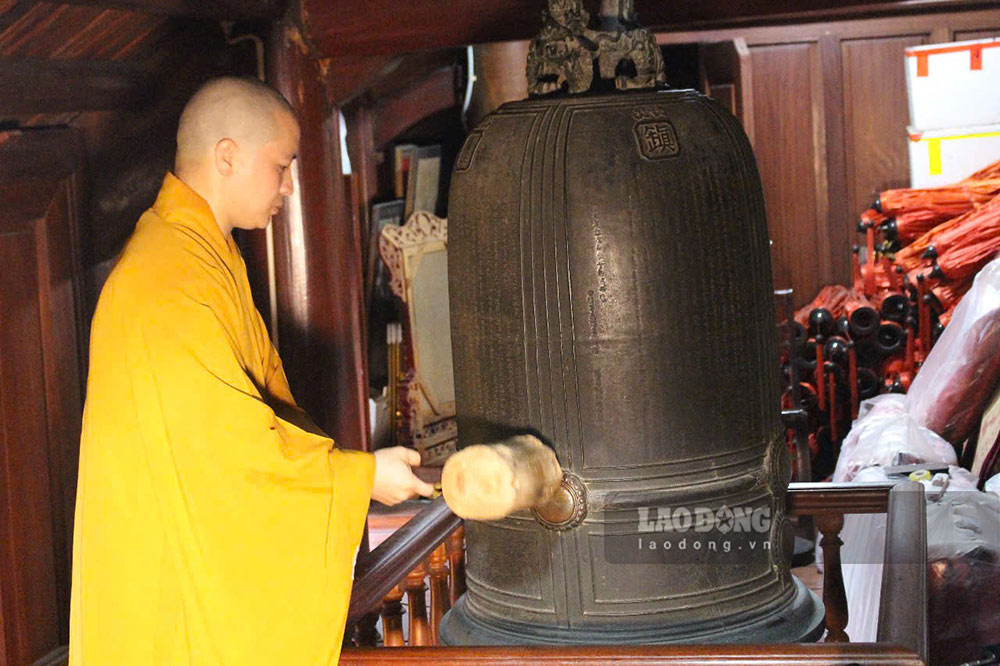
Tran Quoc Pagoda is one of the oldest pagodas in Vietnam, originally named Khai Quoc Pagoda (meaning Open Water). During the reign of King Le Hy Tong (1681 - 1705), the pagoda was renamed Tran Quoc and is still in use today.
Ms. Hong Nhung (29 years old, Hanoi) said: "I went to Tran Quoc Pagoda at 5:30 am to attend the bell-ringing ceremony on the first day of operating the two-level local government model".
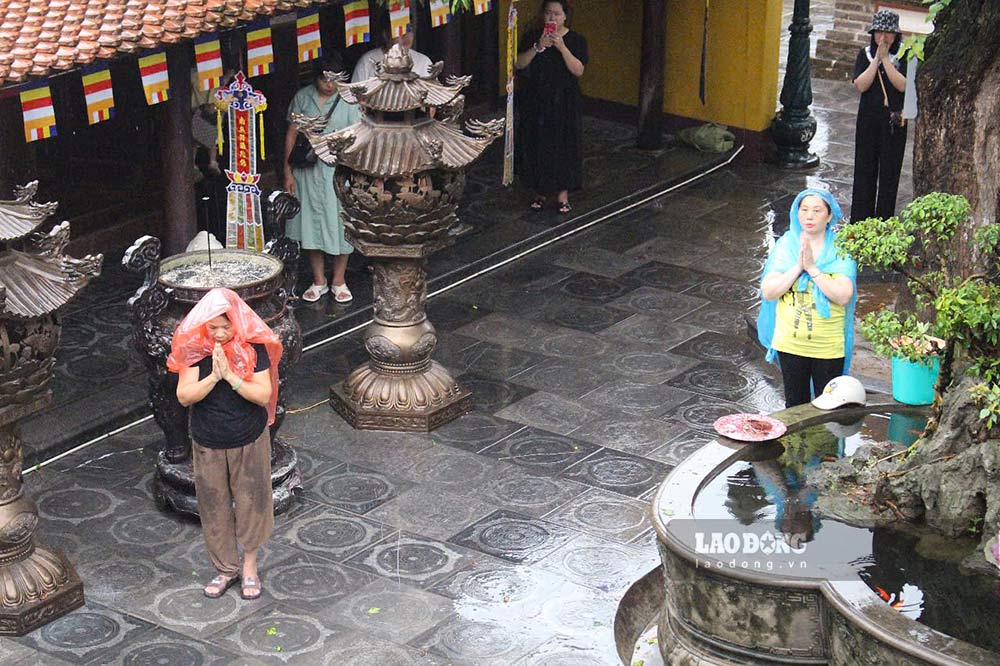
At Due Tu Pagoda (Nghia Do Ward, Hanoi), at exactly 6am, the bells rang in the peaceful space. A large number of people are present here to witness the sacred moment in the ancient place with a history from the Ly Dynasty - under King Ly Nhan Tong (1072-1128).
Mr. Nguyen The Son, Party Cell Secretary, Head of the Vietnam Fatherland Front Working Committee of Group 1 (Nghia Do Ward, Hanoi) said: "At this Due Tu Pagoda yard, I and everyone came here to listen to the bell-calling in the sacred moment of the whole nation. This is the pride and excitement of a Vietnamese people, when the country has changed and innovated".
Doan Thi Thanh Nhi, a resident of Nghia Do ward, said she was moved and proud to hear the bells ringing on the morning of July 1.
"When I heard that at 6am, pagodas across the country would ring 3 bells to celebrate this event, we were here and listened to that bell, in the sacred hour, we were very happy and moved," Ms. Nhi shared.
From Quan Su Pagoda - Headquarters of the Vietnam Buddhist Sangha, Tran Quoc Pagoda in Hanoi to Yen Tu Pagoda (Quang Ninh), Tam Chuc Pagoda (Ninh Binh)... the sacred bells resound. After the bell-ringing ceremony, the Bat Nha drum is a Prayer for National Security and favor in the rain and wind.
Some pagodas and autonomous facilities will send bells later depending on the schedule of the morning praying ceremony.
People, Buddhists and tourists can visit pagodas and monuments across the country to commune in their prayers and experience important historical moments on the morning of July 1.
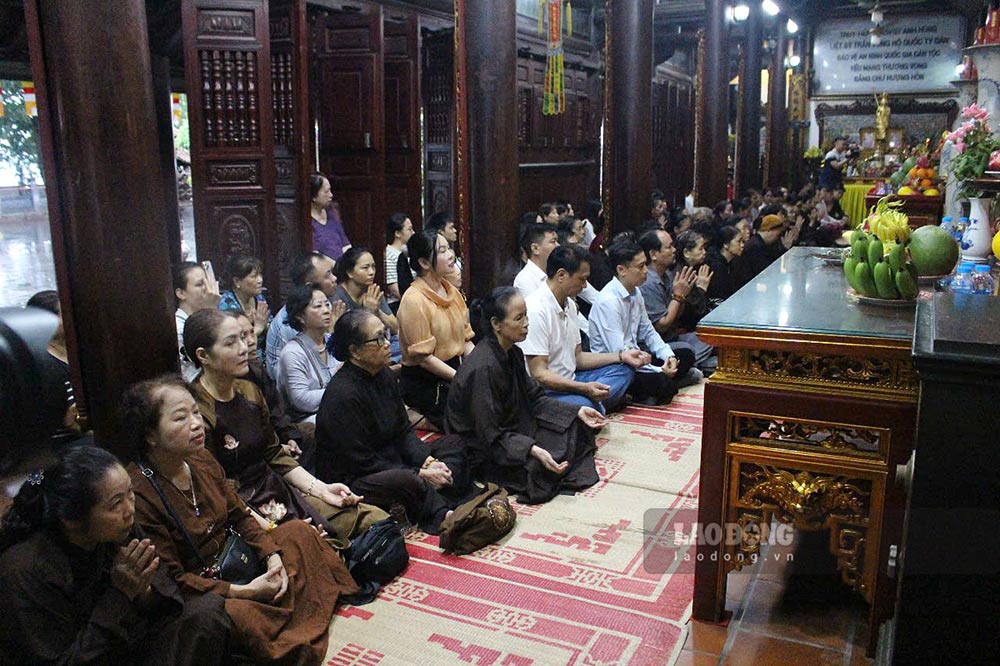
Previously, according to the document sent by the Board of Directors of the Vietnam Buddhist Sangha to localities on June 25, pagodas and autonomous institutions across the country were requested to ring three bells to pray for national peace at exactly 6:00 a.m. on July 1.
The Vietnam Buddhist Sangha considers this an extremely special historical event in the process of the nation entering a new era of prosperous development.
Pagoda and monastery facilities will celebrate and organize spiritual rituals to pray for peace, arousing the strength of national unity. This activity took place on the same day that the new provinces and cities began operating the two-level local government model after the merger.
According to statistics from the Vietnam Buddhist Sangha in 2021, Vietnam has about 18,000 - 20,000 pagodas, monasteries, monasteries, monasteries, monasteries, monasteries, etc.
The simultaneous celebration of three bells and Drums of the Ancestor's Prayer for National peace and Comedy at pagodas and monuments across the country, especially on major national holidays, War Invalids and Martyrs Day on July 27, an important festival such as the full moon day, the first day of the Lunar New Year, the Lunar New Year, the Vu Lan Festival...

